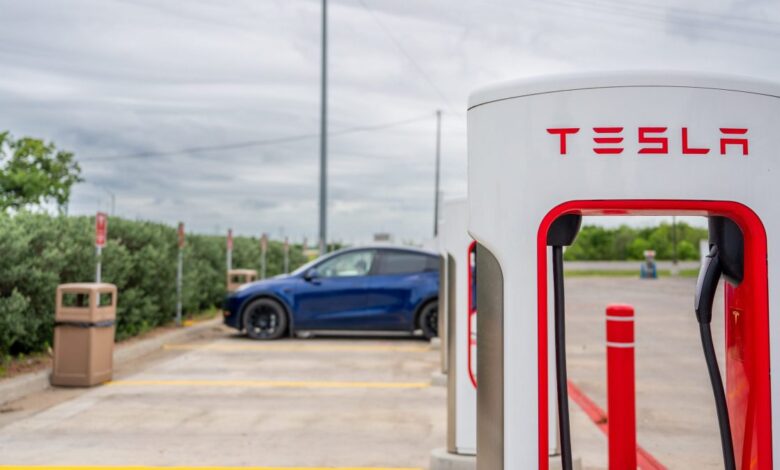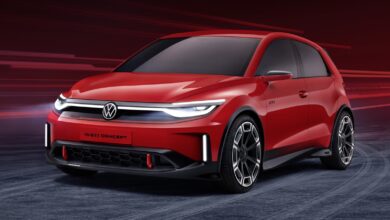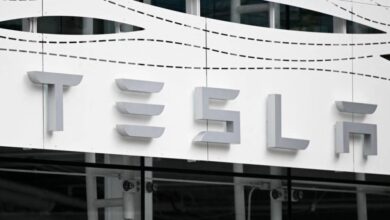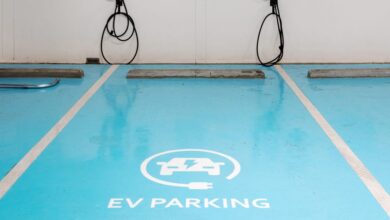Tesla laid off almost everyone that built its EV charging network

This week, Tesla abruptly laid off most of the employees that build its charging network. CEO Elon Musk says the company still plans to grow that network, which is in the process of opening to other car companies. But it’ll do so more slowly and now without about 500 of the people who built the system, which dominates the charging market.
So how might the cuts affect the broader EV ecosystem?
Ingrid Malmgren has been driving her son to look at colleges lately, and while some EV models might have trouble charging up on those kinds of longer trips, she said it’s no problem in her Tesla.
“The vehicle automatically routes you to the appropriate charger; it sort of manages your trip,” she said.
Malmgren is the senior policy director of Plug In America, a nonprofit aimed at getting more people in EVs.
“The charging is really fast,” she said. “You know, I order food or get a snack or something, and often the vehicle’s ready to get back on the road before I am.”
Those features have made Tesla’s charging network a hit with its drivers. They’ve also given the company a leg up, according to Seth Weintraub, publisher of the EV news site Electrek.
“Because Tesla was so early in that game and they had one kind of car to charge, they were able to kind of scale like way, way better than any other company out there,” he said.
That’s largely why a bunch of other car companies started announcing deals with Tesla to adopt its charging system over the past year. It’s quickly becoming the industry standard, and that means more drivers will start relying on Tesla’s charging stations.
“They’ve got this huge network out there already built, and they can, you know, make a margin on electricity because it’s already there,” said Weintraub.
So, Weintraub — and everyone I spoke to for this story — was pretty surprised that Tesla would suddenly scrap its charging team.
Stephanie Valdez-Streaty with Cox Automotive has questions: “What does this all mean? And what’s going to happen? And kind of, how does it delay the rollout of infrastructure?”
There are no clear answers to those questions right now. Tesla did not respond to a request for comment. But one factor might be the unique challenges that come with building and maintaining a charging network, said Jessika Trancik, a professor at MIT.
“You may encounter delays in permitting,” she said. “You arrive at the site and you find out that there are some site specific conditions that you hadn’t anticipated.”
That’s a fundamentally different business than building cars in a factory. So while Tesla is seeing a slowdown in sales and profits, it might have decided to pivot away from charging.
“My guess is that they kind of updated their projections for how much to focus on this part of the business and how profitable that part of the business would be,” Trancik said.
But, she added, Tesla’s not the only company that makes EV chargers — so there may be an opportunity for others.
There’s a lot happening in the world. Through it all, Marketplace is here for you.
You rely on Marketplace to break down the world’s events and tell you how it affects you in a fact-based, approachable way. We rely on your financial support to keep making that possible.
Your donation today powers the independent journalism that you rely on. For just $5/month, you can help sustain Marketplace so we can keep reporting on the things that matter to you.



